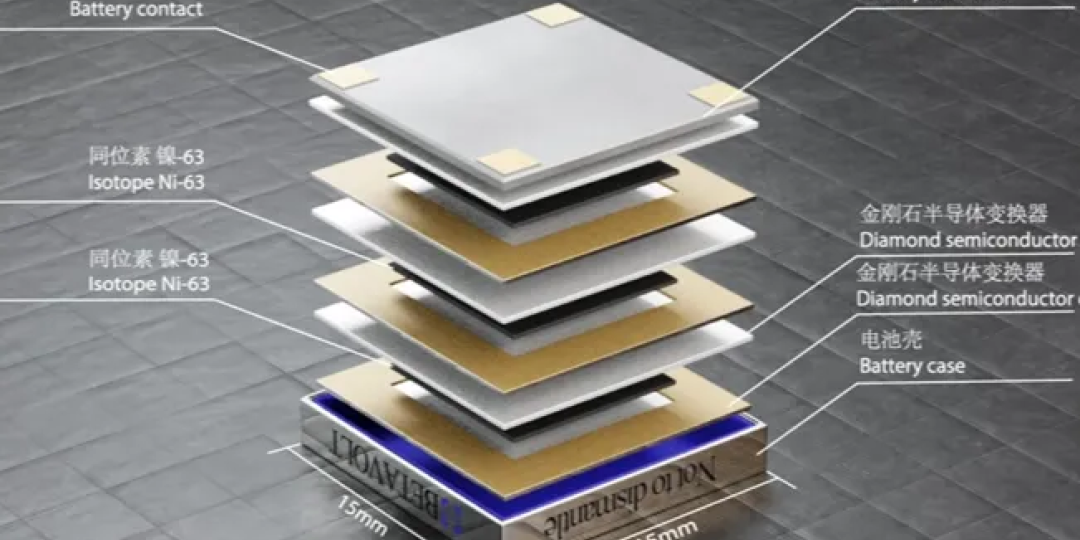Beijing Betavolt New Energy Technology Co., Ltd. announced on January 8 that it has successfully developed a miniature atomic energy battery.
The company's first product, the BV100 battery, has a power of 100 microwatts, a voltage of three volts and a size of 15×15×5 mm, which is smaller than a coin. Atomic energy batteries, also known as nuclear batteries or radioisotope batteries, work on the principle of utilising the energy released by the decay of nuclear isotopes and converting it into electrical energy through semiconductor converters. This product combines the nickel -63 nuclear isotope decay technology and China's first diamond semiconductor. Betavolt's team of scientists developed a unique single-crystal diamond semiconductor that is just 10 microns thick, placing a 2- micron-thick nickel-63 sheet between two diamond semiconductor converters.
The energy density of nuclear batteries is more than 10 times that of ternary lithium batteries. They do not catch fire or explode even when punctured or shot. They can operate normally within a temperature range of -60 C to 120 C. The atomic energy battery developed by Betavolt is absolutely safe, has no external radiation, and is suitable for use in medical devices such as pacemakers, artificial hearts and cochleas in the human body.
Atomic energy batteries are environmentally friendly. After the decay period, the nickel-63 isotope as the radioactive source turns into a stable isotope of copper, which is non-radioactive and does not pose any threat or pollution to the environment. Betavolt atomic energy batteries are claimed to generate electricity stably and autonomously for 50 years without the need for charging or maintenance. They have entered the pilot stage and will be put into mass production on the market. The company plans to launch a 1- watt battery in 2025. If policies allow, atomic energy batteries could allow a mobile phone to operate without recharging , and drones that can only fly for 15 min to fly continuously.















